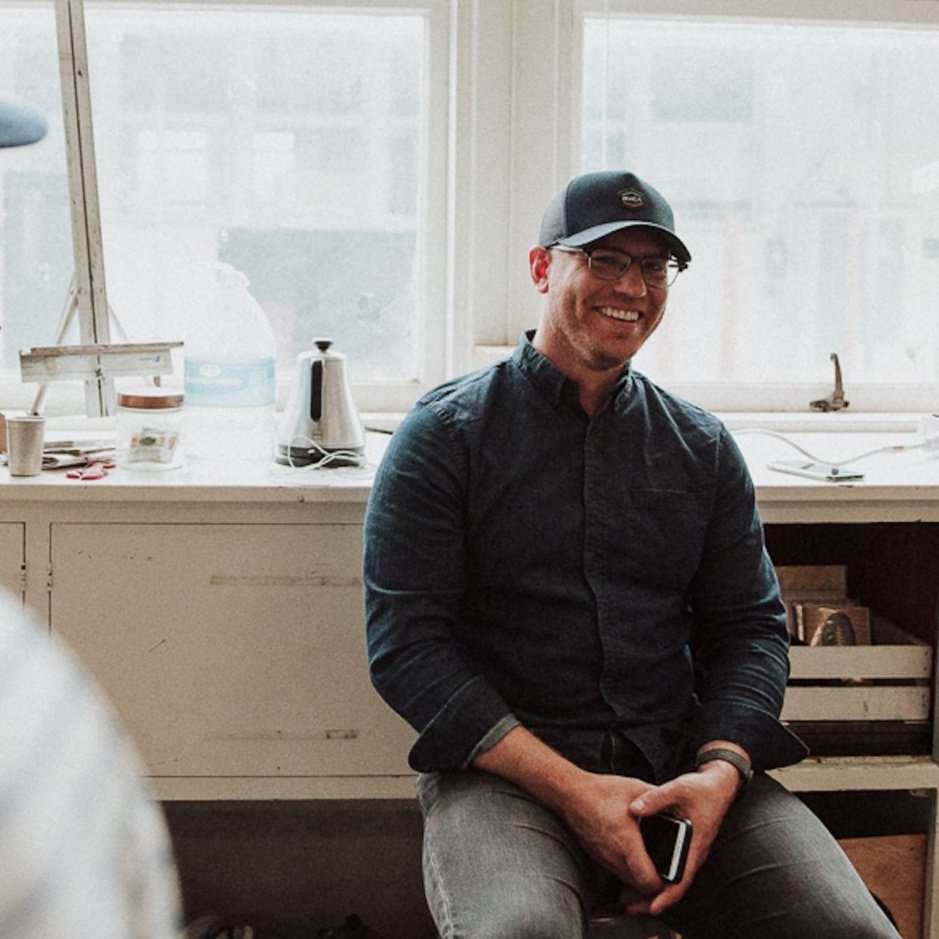Our Story
After years of leading churches and hitting the goals that get applause, Russ walked away—not out of burnout, but because he realized the system runs on control, and grace doesn’t play by those rules. And that’s a real problem—because when grace gets tamed, faith never leads to the freedom Jesus gave.
So he and his friend Tony started Lark—a crowdfunded rebellion to set faith free from the systems that can’t afford to let grace mean what Jesus meant.
We believe there’s a world grace would create—if we’d only let it. So we create resources and spaces that help people see grace for what it really is—and live like it’s actually true.
-
Something’s happening. You can feel it.
More and more people are walking away from the noise—not because they’ve given up on Jesus, but because they’re finally starting to take Him seriously.
They’re discovering a different kind of world. Not built on pressure, performance, or pretending—but on grace.
A world where:
People see the God of grace.
Embrace the life of grace.
And bring the conversation of grace.That’s what we believe. And it’s what we’re here to empower.
Lark isn’t another brand of church Jesus didn’t call for—it’s a space where this kind of faith can breathe. Where you can see what’s possible, and step into it—at your own pace, right where you are.
Start with the free video series HERE.
-
We mean providing resources and spaces that help you:
Trust in who Jesus already is—for you.
Reclaim grace for what it is—the air we breathe.
Trade the pressure to prove for the permission to rest.
Step into the way of friendship over church systems.
Learn to live like you already belong—right here, right now, in the middle of your actual life.
We mean relief.
-
Because the tattered stories of our lives—and the shipwreck of human history—are the very places Jesus said He could be found.
To speak of Jesus, as Scripture shows us, is never to speak of Him in isolation. It’s to speak of the Father and Spirit who are one with Him—and of all humanity. For in Him is “life” itself, our very existence, “the one in whom we live and move and have our being” (John 10; 14; Acts 17).
This is why any version of “following Jesus” or “having real faith” that centers on perfecting your story or fixing society misses the point.
This misunderstanding doesn’t just fail us; it fails Jesus. It fails Him because it undermines the reconciliation He already accomplished for everyone (Col 1:15-20). And it fails the world because it offers a false hope—a hope dependent on what we’re doing and who we’re becoming, instead of the freedom found in who Jesus already is for us.
-
When we look to Jesus, we don’t see a teacher handing out bullet points or leading a study group. We see someone who asks questions, shares meals, and tells stories—open-ended conversations that invite people to wrestle, wonder, and discover.
Sermons and studies can tell you what the Scriptures say, but they can’t teach you to live free. Why? Because faith isn’t something you master—it’s something you practice. And that happens in conversations where you can be honest about who you are and where you’re at in life. It’s unhurried and unplanned, not pushed or programmed.
It’s for this reason that we’re committed to the one thing we can do: bring the open-ended conversation of grace into real life, rather than straining to bring the change we believe is needed in others and within our control.
-
We hold to the doctrines expressed in the Apostle's Creed in general, and specifically to the following:
About Christ: Aware of humanity's perpetual love affair with performance, Jesus tells the most shocking stories of grace to level all our empires of progress. For both religious Pharisees with resumes and despondent tax-collecting outcasts, Jesus did the impossible. He reconciled all to God through His death and resurrection. This “Good News” is the invitation out of the exhausting madness of trying to hide the junk of our lives. We are free to be nothing in Christ.
About Church: The mystery of the kingdom of God is like a dragnet being hauled to shore, catching everything in its path. It rejects nothing, Jesus said. One day this net will arrive on the beach, and the angels, not us, will determine what is and what is not. In the meantime, we are free to be what we are: a random sampling of the frail world that God has united himself to in Christ. To be the Church and pretend we are anything more would be false advertisement.
About Change: We are conditional creatures. But only because we love the allure of control that lies with if/then transactions. We want a life of sight—not faith; a life that’s about here—not hope in a place to come; a life that offers lists to assure we’re okay—not a way of love that doesn’t compute. One is tidy, the other is messy. But only one is the life God has actually given us. Like branches on a Vine, we exist solely in the hands of a Vinedresser. Transformation is His work. Not ours.
-
Yep, Lark’s a legit nonprofit.
We’re backed by a board of friends who believe the life Jesus offers cannot be found in the systems that can’t let grace mean… grace.Together, we help people see grace for what it really is—so they can finally live like’s actually true. Right where they are. And yep—every donation is tax-deductible.
Join the Team
If you want to make discipling others your life’s work—we’ve built a structure to help you raise support to do just that. Reach out to russ@larksite.com to learn more.







